
Navigation
- Announcing IPPI: The IP Policy Institute
- IPPI Spring Progress Report (December 2024-February 2025)
Announcing IPPI: The IP Policy Institute
A Message from Faculty Chair Mark Schultz and Executive Director Joshua Kresh
Dear Friends of the Innovation and Creative Industries,
We’re excited to announce the launch of IPPI: The IP Policy Institute at The University of Akron School of Law. While our name is new, our team, mission, and commitment to great IP scholarship and policy work are very familiar.
Who We Are: IPPI emerges from the former C-IP2 team at George Mason University, bringing together familiar faces and new additions:
- Professor Mark Schultz, original co-founder of C-IP2/CPIP, returns as Faculty Chair
- Joshua Kresh continues as Research Professor and Executive Director
- Professor Emily Michiko Morris joins as Associate Faculty Chair
- Our dedicated and talented professional staff remains intact, ensuring operational continuity
- We welcome Douglas Park as our new in-house Research Fellow
Continuing Our Mission: At IPPI, we remain committed to fostering rigorous, fact-based scholarship that examines IP’s vital role in promoting innovation and creativity. Our extensive network of scholars and supporters continues to be the foundation of our work.
Looking Forward: We’re hitting the ground running with a robust slate of programs:
- The Edison Fellowship program continues uninterrupted
- Academic roundtables and policy-focused events (details coming soon)
- A special Winter Institute conference in Orlando next February
- Expanded research initiatives and policy engagement in Washington DC
- A newly launched global scholars’ network and international policy initiatives
Work Already Underway: We’ve enclosed our Spring Progress Report, highlighting the impressive work completed by our network. While this would have been the final C-IP2 report, it represents the ongoing scholarship and engagement that will continue under IPPI.
Join Us on This Journey: As we embrace this new chapter, we’re not just continuing established programs—we’re open to new ideas and collaborations. We welcome conversations with anyone interested in partnering with IPPI.
We value your continued engagement as we build on our strong foundation. Please reach out with any questions or ideas.
Best regards,
 Joshua Kresh
Joshua Kresh
Research Professor & Executive Director
Jkresh@uakron.edu
_
 Mark F. Schultz
Mark F. Schultz
Faculty Chair
Mschultz@uakron.edu
_
IPPI: The IP Policy Institute
The University of Akron School of Law
Washington, D.C.
IPPI Spring 2025 Progress Report (December 2024 – February 2025)
IPPI Hosted & Co-Hosted Events
These are events either hosted or co-hosted by the members of the IPPI team and our affiliates from December 2024 through February 2025.
Thomas Edison Innovation Law and Policy Fellowship**
On January 15-17, members of the IPPI team hosted the third and final meeting of the 2024-2025 Fellowship. The Edison Fellows presented substantially revised drafts of their research papers and received feedback from Distinguished Commentators and other Fellows before submission to journals.
**The Thomas Edison Innovation Law and Policy Fellowship is a program now being organized by the IPPI team at The University of Akron.
Roundtable on Intellectual Property and High-Tech Policy
On February 12, members of the IPPI team hosted a roundtable on IP and high-tech policy in Arlington, VA. Academics, legal and industry professionals, and policymakers discuss topics such as “IP & the ITC,” “Access to Infringement Litigation,” “Remedies & Patent Infringement,” and “Antitrust & IP in the New Administration.”
News & Speaking Engagements
These are news and speaking engagements for the members of the IPPI team and our affiliates from December 2024 through February 2025.
Welcome to the IPPI team’s new Affiliates!
- IPPI Economist
- Dr. Alexander Raskovich (IPPI Senior Economist)
- IPPI Scholars
- Michael Goodyear (IPPI Scholar; Acting Assistant Professor, New York University School of Law; Fellow, NYU Law’s Engelberg Center on Innovation Law & Policy; 2023-2024 Edison Fellow)
- “After a wonderful experience researching the evolution of copyright doctrine in response to new technologies as an Edison Fellow last year, I am excited to continue working with [IPPI] as a Scholar!”
- Professor Michael D. Murray (Spears Gilbert Associate Professor of Law University of Kentucky)
- Says Professor Murray, “I am very happy to be named a “Scholar” of the [IPPI]. I have enjoyed participating in their conferences and roundtable discussions. [IPPI] always does an excellent job bringing industry experts into contact with academics to enrich the discussion and broaden the perspectives expressed on the critical IP topics of the day.”
- Dr. Nicola Searle (IPPI Scholar; Reader (Associate Professor), Institute for Cultural and Creative Entrepreneurship (ICCE), Goldsmiths, University of London; 2023-2024 Edison Fellow)
- Michael Goodyear (IPPI Scholar; Acting Assistant Professor, New York University School of Law; Fellow, NYU Law’s Engelberg Center on Innovation Law & Policy; 2023-2024 Edison Fellow)
Congressional Testimony
- On December 18, Mark Cohen (IPPI Senior Fellow for China IP) testified before the House Judiciary Committee in its last session on “IP and Strategic Competition with China”; this last hearing was on “Patents, Standards and Lawfare.” Mr. Cohen was the only person to testify twice before this committee during the two years in which it was holding hearings on IP and Strategic Competition with China. A video of the hearing is available on the hearing webpage, and Mr. Cohen’s written testimony is also available online.
- Also on December 18, Professor Kristen Osenga (IPPI Senior Fellow for Innovation Policy) testified before the U.S. Senate Committee on the Judiciary Subcommittee on Intellectual Property’s Hearing “Time Change: The RESTORE Patent Rights Act: Restoring America’s Status as the Global IP Leader.” A video of the hearing is available on hearing webpage, along with Professor Osenga’s written testimony.
Media Mentions
October 2023 and 2024 IP conferences in Arlington, VA—run by members of the current IPPI team—were mentioned in several recent articles:
- December 11 Fox News article on Judge Pauline Newman mentions the Judge’s delivering remarks for the October 2023 conference.
- The conference was mentioned in Forbes December 6 article “Litigation Financing: A National Security Threat Or Lifeline For Startups?” by Dr. Christine McDaniel of the Mercatus Center at George Mason University
Other News
2021-2022 Edison Fellow Molly Torsen Stech’s article Copyright Thickness, Thinness, and a Mannion Test for Images Produced by Generative Artificial Intelligence Applications was selected for INTA’s special AI Issue (November-December, 2024).
On December 12, IPPI Advisory Board Members the Hon. Paul R. Michel and the Hon. Susan G. Braden (Ret.) (also IPPI Jurist in Residence) joined other judges in signing and submitting an amicus brief in support of the appellant, urging reversal, in The Hon. Pauline Newman v. The Hon. Kimberly A. Moore, et al.
On December 12, IPPI Advisory Board Member the Hon. Andrei Iancu spoke at the hybrid Hudson Institute event “What’s Ahead for Innovators and Creators in the New Trump Administration?”( event recording is available via link).
On January 22, The Well News published the commentary post “A Reality Check for Patent Quality Critics” by the Hon. Andrei Iancu and the Hon. David Kappos, Co-Chairs of the Council for Innovation Promotion (C4IP) and Members of IPPI’s Advisory Board. The piece cites the Sunwater Institute’s September 2024 policy report Patent Quality in the United States: Findings and Suggestions for Policymakers, co-authors of which include 2022-2023 Edison Fellows Dr. Ani Harutyunyan and Dr. William Matcham.
* * *
News and Updates by IPPI Affiliate
Dr. Kristina M. L. Acri, née Lybecker
IPPI Senior Scholar; John L. Knight Chair of Economics and Professor of Economics, Colorado College
- Participated in February 12 roundtable on Intellectual Property and High-Tech Policy hosted by members of the IPPI team in Arlington, VA
Jonathan Barnett
IPPI Senior Scholar; Torrey H. Webb Professor of Law, USC Gould School of Law
- In December, was mentioned as a speaker on “The Inevitable Consequences of Misguided Innovation Policy” as part of IPWatchdog LIVE 2025 event in March
- Participated in February 12 roundtable on Intellectual Property and High-Tech Policy hosted by members of the IPPI team in Arlington, VA
- Discussed his book The Big Steal: Ideology, Interest, and the Undoing of Intellectual Property (Amazon | SSRN) for the virtual February 13 Hudson Institute event “The Big Steal: Big Tech’s Theft of Intellectual Property” (a recording of the event is available on the Hudson Institute’s webpage for the event)
Chief Judge Susan G. Braden (Ret.)
Court of Federal Claims (Ret.); IPPI Jurist in Residence
- Was mentioned in PatentDocs’ January 7 blog post “Enough is (Apparently) Enough – Part IV”
Daniel R. Cahoy
IPPI Senior Scholar; Robert G. and Caroline Schwartz Professor & Chair of the Risk Management Department, The Pennsylvania State University’s Smeal College of Business
- Recent article, Trademark’s Grip over Sustainability (94 Colo. L. Rev. 1041 (2023)), was selected for inclusion in the list of top 20 articles selected for the 2025 Environmental Law and Policy Annual Review (ELPAR), a joint publication of the Environmental Law Institute’s Environmental Law Reporter and Vanderbilt University Law School
Terrica Carrington
IPPI Practitioner in Residence; Senior Counsel & Director, Law, Policy & International, Motion Picture Association
- In December, moderated a fireside chat between Karyn Temple (SEVP and Global General Counsel, MPA) and Deborah Lashley-Johnson (Acting Director, IP Attache Program, USPTO) at a summit co-hosted by the USPTO and the MPA’s Alliance for Creativity and Entertainment
Theo Cheng
IPPI Practitioner in Residence; Arbitrator and Mediator, ADR Office of Theo Cheng LLC; Adjunct Professor, New York Law School
- On December 5, served as a panelist on a webinar program entitled “Ethics for Neutrals: Recognizing the Ethics Issues That Might Slip Under Your Nose,” which was sponsored by the New York State Bar Association Dispute Resolution Section’s Ethics Committee
- On January 22, gave an online presentation to the Mediation Committee of the New York State Bar Dispute Resolution Section entitled “Bracketing in Negotiations and Mediations”
- On January 27, was a panelist at the Practising Law Institute’s Wage & Hour Litigation and Compliance 2025 where he moderated and spoke on a program entitled “Ethical/Unethical Witness Preparation in Wage and Hour Cases”
Eric Claeys
IPPI Senior Fellow for Scholarly Initiatives & Senior Scholar; Professor of Law, George Mason University Antonin Scalia Law School
- On January 15-17, co-led in the virtual third and final meeting of the 2024-2025 Edison Fellowship
Mark Cohen
IPPI Senior Fellow for China IP & Scholar
- In early November, former USPTO Director the Honorable David Kappos, retired CAFC Chief Judge the Honorable Randall R. Rader, and Mr. Cohen filed an amicus brief in the TCL v Access Advance remand case before the Shenzhen Intermediate Court in China. The brief argues that the Supreme People’s Court of China misconstrued how patent pools work in licensing standardized technology in its assumption that pools necessarily owned the underlying patents and were therefor subject to the jurisdiction of the Chinese courts for violations of FRAND obligations (read more). An article in Law 360 by the three authors of the amicus brief in TCL v. Access Advance in China is forthcoming.
- Was interviewed for December 12 Intellectual Assets Magazine (IAM) piece “US-China IP Relations Under the Microscope Ahead of Trump 2.0,” as well as being interviewed with others for second, December 18 piece “Potential US-China hostility under Trump ramps up risk for trade secret owners” (links may require subscription for access)
- On December 13 (Japan time), spoke before Keio University, Japan, as part of a symposium on “Future of US-Asia/World Economic Relationships after 2024 Elections”
- On December 18, testified before the House Judiciary Committee in its last session on “IP and Strategic Competition with China”; this last hearing was on “Patents, Standards and Lawfare.” Mr. Cohen was the only person to testify twice before this committee during the two years in which it was holding hearings on IP and Strategic Competition with China. A video of the hearing is available on the hearing webpage, and Mr. Cohen’s written testimony is also available online.
- On January 7, discussed the U.S.-China Science and Technology Agreement (STA) in a virtual panel hosted by the Quincy Institute for Responsible Statecraft
- On February 2, moderated a virtual roundtable on China’s trademark law that was hosted by the UC Berkeley Center for Law & Technology (learn more)
- On February 4, moderated the workshop “Has the Sleeping Dragon Woken Up? A Workshop on U.S.-China Tech Competition and Collaboration” on best practices for assessing China’s technological and scientific accomplishments. The workshop was hosted in San Francisco, CA by the Asia Society Northern California.
- In February, Mr. Cohen’s comments on law firm exodus from China appeared in an article at ChinaFile
- Participated in February 12 roundtable on Intellectual Property and High-Tech Policy hosted by members of the IPPI team in Arlington, VA
Loletta (Lolita) Darden
IPPI Scholar; Visiting Associate Clinical Professor and Director, Intellectual Property and Technology Clinic, The George Washington University Law School
- Along with Samantha Levin, Esq., spoke at the Washington Area Lawyers for the Arts (WALA) session “Contracts and Copyright 101 for the Film Industry: Understanding Your Rights and Creative Ownership” as part of the DC Independent Film Forum’s series of professional seminars from February 12-17, 2025
Gregory Dolin
IPPI Senior Scholar; Associate Professor of Law, University of Baltimore School of Law
- Was referenced in January 29 Patently-O patent blog post “Is Google Simply Asking for More Efficient Infringement?”
John F. Duffy
IPPI Senior Scholar; Samuel H. McCoy II Professor of Law and Paul G. Mahoney Research Professor of Law, University of Virginia School of Law
- On January 15-17, served as a Distinguished Commentator for the virtual third and final meeting of the 2024-2025 Edison Fellowship
- Was mentioned in February 5 UVA Law news story “New Center on Intellectual Property Prepares Students for Future of Legal Practice”
- Was mentioned in February 16 Yale Journal on Regulation Notice & Comment post “Federalist Society’s National Student Symposium, 3/7-3/8: Congress: Reviving the Impetuous Vortex”
Tabrez Ebrahim
IPPI Scholar; Associate Professor of Law at Lewis & Clark Law School
- On December 15, presented “Intellectual Property Considerations for Saudi Aramco” to the Legal Department and Chief IP Counsel of Saudi Aramco at the Saudi Aramco Corporate Headquarters in Dhahran, Saudi Arabia
- On December 26, presented “Introduction to Patent Law” at Jordan University of Science and Technology in Irbid, Jordan to the Faculty of Pharmacy
Gillian Fenton, Esq., CLP
IPPI Practitioner in Residence; Founder and Managing Director, LST Strategies LLC
- In December, attended a Transition Report Roundtable hosted by CSIS
- In December, instructed students in Module 1 (IP Basics) and Module 2 (Licensing Basics) of the LES entry-level IP Licensing Basics course
Jon M. Garon
IPPI Senior Scholar; Professor of Law and Director of the Intellectual Property, Cybersecurity, and Technology Law program, Nova Southeastern University Shepard Broad College of Law
- In January, was appointed Associate Dean for Administration and Non-JD Programs at Nova Southeastern University | Shepard Broad College of Law, where he serves as Professor of Law and Director of the Goodwin Program for Society, Technology and the Law
- In January, completed his term as chairperson of the AALS Section of Technology, Law, and Legal Education
- In January, gave a presentation on “Adjusting Risk Management for AI” at the ABA Business Law Section Cyber and Technology Law Institute
- In January, gave a presentation on “The Impact of Artificial Intelligence Content on Fan Fiction”
- In January, served as a moderator for the AALS Section of Technology, Law, and Legal Education Works In Progress at the 2025 AALS Annual Meeting
- Was mentioned in February 25 ABA The Business Lawyer Winter 2024-2025, Volume 80, Issue 1 article “Survey of the Law of Cyberspace: An Introduction to the 2024-2025 Survey”
Michael Goodyear
IPPI Scholar; Acting Assistant Professor, New York University School of Law; Fellow, NYU Law’s Engelberg Center on Innovation Law & Policy
- Joined IPPI as a Scholar
- On January 17, presented “Dignity and Deepfakes” at the 2025 Tri-State Region IP Workshop at NYU
- On January 31, presented “Common Law Notice-and-Takedown” at the 22nd Annual Works In Progress for Intellectual Property Scholars Colloquium (WIPIP 2025)
- On February 7, spoke on a panel at the Stetson Business Law Review Symposium on AI and intellectual property
- On February 13, presented “Artificial Infringement” at the Digital Life Seminar at Cornell Tech
- On February 21, presented “Dignity and Deepfakes” at the Charleston Law Review Seventeenth Annual Law & Society Symposium
Dr. Ani Harutyunyan
IPPI Practitioner in Residence
- Participated in February 12 roundtable on Intellectual Property and High-Tech Policy hosted by members of the IPPI team in Arlington, VA
Justin (Gus) Hurwitz
IPPI Senior Scholar; Senior Fellow and Academic Director, Center for Technology, Innovation, and Competition, University of Pennsylvania Carey Law School
- Was quoted in USA Today’s December 20 story “Will the Supreme Court save TikTok? What’s ahead in the final legal showdown.”
- Was quoted in Bangkok Post’s January 10 article “TikTok showdown reaches US Supreme Court”
- Was referenced in January 21 VERIFY report “VERIFYING what a TikTok ban means for you” with contributions from the Associated Press
Steven D. Jamar
IPPI Senior Scholar; Associate Director, Institute for Intellectual Property and Social Justice (IIPSJ); Professor Emeritus, Howard University School of Law
- On February 28, IIPSJ and Finnegan Law cohosted the 22nd Annual IP and Social Justice CLE Program at the USPTO Headquarters in Alexandra, VA
Joe Keeley
IPPI Practitioner in Residence; Principal, Keeley Law & Policy; Former Chief Counsel of Senate Budget and General Counsel of Senate Judiciary
- With Matthew Williams (Partner, MSK), is teaching George Mason University Antonin Scalia Law School’s Arts & Entertainment Advocacy Clinic for Spring 2025
Joshua Kresh
Research Professor & Executive Director, IPPI, The University of Akron School of Law
- Joined The University of Akron School of Law as a Research Professor and Executive Director of IPPI: IP Policy Institute
- Participated in February 12 roundtable on Intellectual Property and High-Tech Policy hosted by members of the IPPI team in Arlington, VA
Erika Lietzan
IPPI Senior Scholar; William H. Pittman Professor of Law & Timothy J. Heinsz Professor of Law, University of Missouri School of Law
- On January 15-17, served as a Distinguished Commentator for the virtual third and final meeting of the 2024-2025 Edison Fellowship
Daryl Lim
IPPI Senior Scholar; H. Laddie Montague Jr. Chair in Law; Associate Dean for Research and Innovation; Founding Director, Intellectual Property Law and Innovation Initiative; and co-hire, Institute for Computational and Data Sciences, Penn State University
- Was mentioned in PSU’s December announcement “BBC Interviews Associate Dean Daryl Lim on Tech and Trump 2.0”
- Article Trademark Confusion Revealed: An Empirical Analysis was selected for INTA’s special AI issue
- Was mentioned in PSU Dickinson Law’s December story “Trademark Reporter Selects Associate Dean Daryl Lim’s Article for Special AI Issue”
- Was quoted in PSU Law’s January announcement “Associate Dean Daryl Lim Featured in Reuters Commentary on Apple Siri Privacy Settlement”
- On January 29, engaged in a Q&A with Penn State’s Institute for Computational and Data Sciences, “Q&A: Can AI be governed by an ‘equity by design’ framework?”
- Was mentioned in The Debrief’s February 11 post “AI Governance Through ‘Equity by Design’ Is Needed to Protect Marginalized Communities, Expert Warns”
- On February 21, spoke on the panel “The Clash of AI Competition and Copyright Law” at the George Mason University Antonin Scalia Law School Law & Economics Center’s 28th Annual Antitrust Symposium
Irina D. Manta
IPPI Senior Scholar; Professor of Law, Hofstra University School of Law
- Was mentioned in February 14 Hofstra Law News story “Prof. Irina Manta Discusses Lawsuit Against AI Company for Alleged Copyright Infringement” (full story on Newsday)
Emily Michiko Morris
IPPI Associate Faculty Chair, Senior for Life Sciences, and Senior Scholar; 2021-2022 Edison Fellow; David L. Brennan Endowed Chair, Associate Professor, and Associate Director of the Center for Intellectual Property Law & Technology, University of Akron School of Law
- Was named Faculty Co-Chair of The IP Policy Institute (IPPI) with The University of Akron School of Law
- Was quoted in December 4 FDA Law Blog post “’If You’ve Got Legitimate Suspenders, Don’t Have an Unconstitutional Belt:’ Federalist Society Panel’s Take on Jarkesy and the Preserve Access to Affordable Generics and Biosimilars Act”
Lateef Mtima
IPPI Senior Scholar; Professor of Law, Howard University School of Law; Founder and Director, Institute for Intellectual Property and Social Justice (IIPSJ)
- On February 28, IIPSJ and Finnegan Law cohosted the 22nd Annual IP and Social Justice CLE Program at the USPTO Headquarters in Alexandra, VA
Loren Mulraine
IPPI Senior Scholar; Professor of Law, Director of Music and Entertainment Law Studies, Belmont University – College of Law
- On December 6, delivered a CLE presentation on “Termination of Copyright Transfer Under 16 USC § 203” at the Nashville Bar Association’s Annual Entertainment, Sports & Media Law Institute
Michael D. Murray
IPPI Scholar; Spears Gilbert Associate Professor of Law, University of Kentucky
- Joined IPPI as a Scholar
- On January 8, presented “Teaching in the Age of Generative AI: Beyond the Basics,” a report on two years of research on generative AI in law and legal education, at the AALS Annual Meeting 2025 in San Francisco, CA
- At the Center for Computational Sciences, University of Kentucky’s CCS/ITSRCI Seminar Series on AI in Practice, presented “The Intersection of Machine Learning, Generative AI, and Intellectual Property Law” on January 16 and moderated panel presentation “Learning new subjects with Gen AI: AI tutoring and the search for grounded truth” on January 23
Kristen Jakobsen Osenga
IPPI Senior Fellow for Innovation Policy & Senior Scholar; Associate Dean of Academic Affairs, Austin E. Owen Research Scholar and Professor of Law, University of Richmond School of Law
- On December 18, testified before the U.S. Senate Committee on the Judiciary Subcommittee on Intellectual Property’s Hearing “Time Change: The RESTORE Patent Rights Act: Restoring America’s Status as the Global IP Leader.” A video of the hearing is available on hearing webpage, along with Professor Osenga’s written testimony.
- Participated in February 12 roundtable on Intellectual Property and High-Tech Policy hosted by members of the IPPI team in Arlington, VA
Dr. Yogesh Pai
IPPI Scholar; Assistant Professor, National Law University Delhi (NLUD); Co-Director, Centre for Innovation, Intellectual Property and Competition at NLUD
- Was mentioned in a January 25 LiveLaw News Network announcement “NLU Delhi: Certificate Course On International Intellectual Property Law By Dr. Yogesh Pai”
Dr. Alexander Raskovich
IPPI Senior Economist; Director of Research, 2021-2024, Global Antitrust Institute (GAI), George Mason University Antonin Scalia Law School
- Joined IPPI as Senior Economist
- Participated in February 12 roundtable on Intellectual Property and High-Tech Policy hosted by members of the IPPI team in Arlington, VA
Michael Risch
IPPI Senior Scholar; Vice Dean and Professor of Law, Villanova University Charles Widger School of Law
- Was cited in January 24 Business Insider article “They spoke out against their employer. Then they were hit with trade secret suits” (subscription may be required)
- Was Referenced in January 29 Patently-O patent blog post “Is Google Simply Asking for More Efficient Infringement?”
- Was interviewed for February 7 KCBS Radio segment “EU presses Apple for use of encrypted data in criminal investigations”
Alexandra Jane Roberts
IPPI Senior Scholar; Professor of Law and Media & Faculty Director, Center for Law, Information and Creativity (CLIC), Northeastern University School of Law
- Was quoted in December 18 Bloomberg article about the “Success Kid” meme litigation against Rep. Steve King
- Was quoted in December 20 Decrypt article about a lawsuit over a meme coin
- Spoke on the virtual December 6 panel “Copyright and Trademark Litigation Update” for OCEAN (Open Copyright Education Advisory Network)
- In January, was interviewed about her research on trademark registration issues for minors on “Break the Business” and about an influencer lawsuit on Vox’s “Today, Explained” podcast and The Last Show with David Cooper
- In January, was quoted in Women’s Wear Daily about the Sean “Diddy” Combs trial
- Was interviewed about research on dupes for January 21 episode of Felicia Caponigri’s podcast, A Fashion Law Dinner Party with Felicia (listen RSS, Spotify, or Apple Podcasts)
- Research on dupes was discussed in January 27 The Fashion Law article “Can ‘Authentic Fakes’ Exist? A Dive into Dupes” (article may require subscription)
- In February, presented article Dupes at UNC Law and Harvard Law
- Was quoted in February 20 Northeastern Global News article “Could James Bond lose the 007 name because of a trademark claim? A legal expert says it it’s not that simple” about attempts to cancel James Bond trademarks
- Was quoted in February 26 Northeastern Global News article “Why did Birkenstock try to claim its sandals are art?” about IP protection for fashion and the recent Birkenstocks case
- Was quoted in Sportico and CBS about trademark registrations for THREEPEAT and appeared on CBS Nightly News
- In February, served as a panelist in “Pop Culture & the Law,”American University Law Review Spring Symposium
- In February, served as a discussant for the book eventMood Machine: The Rise of Spotify and the Costs of the Perfect Playlist by Liz Pelly, Northeastern CLIC
Mark F. Schultz
IPPI Faculty Chair ; Goodyear Tire & Rubber Company Endowed Chair in Intellectual Property Law, University of Akron School of Law
- Was named Faculty Chair of The IP Policy Institute (IPPI) with The University of Akron School of Law
- On December 10, spoke on the virtual U Akron – ITIF panel “Innovate4Health: How IP and Innovation Are Solving Global Health Challenges”
- On January 15-17, served as a Distinguished Commentator for the virtual third and final meeting of the 2024-2025 Edison Fellowship
- Participated in February 12 roundtable on Intellectual Property and High-Tech Policy hosted by members of the IPPI team in Arlington, VA
- Judged the LatAM Health Champions Startup Competition for INNOS Colombia. The winners of this life sciences startup competition will be hosted in the U.S. in May.
Dr. Nicola Searle
IPPI Scholar; Reader (Associate Professor), Institute for Cultural and Creative Entrepreneurship (ICCE), Goldsmiths, University of London
- Joined IPPI as a Scholar
- IPPI congratulates Dr. Searle on her promotion to Reader (a higher rank of Associate Professor)! Dr. Searle is a 2023-2024 Edison Fellow, as run by members of the IPPI team and Affiliates, and she kindly says that her promotion is “thanks – in no small part – to your support and the Edison Fellowship.”
Ted Sichelman
IPPI Senior Scholar; Professor of Law, University of San Diego School of Law; Director, Center for Intellectual Property Law & Markets; Founder & Director, Center for Computation, Mathematics, and the Law; Founder & Director, Technology Entrepreneurship and Intellectual Property Clinic
- On January 15-17, served as a Distinguished Commentator for the virtual third and final meeting of the 2024-2025 Edison Fellowship
Saurabh Vishnubhakat
IPPI Senior Scholar; Professor of Law, Yeshiva University Benjamin N. Cardozo School of Law
- During the 2024-2025 academic year, Professor Vishnubhakat is on sabbatical at the NYU Engelberg Center on Innovation Law & Policy, while continuing as Director of the IP+Information Law Program at Cardozo Law
- Moderated the Federalist Society’s January 10 panel “Regulation of Algorithms” (video of panel)
- Was quoted in an ABC News January 15 business story “How TikTok can still avoid a ban, according to experts”
- Was referenced in January 29 Forbes Innovation, Consumer Tech article “When Will TikTok Be Back In The Apple App Store And Google Play Store?”
- Participated in February 12 roundtable on Intellectual Property and High-Tech Policy hosted by members of the IPPI team in Arlington, VA
Scholarship & Other Writing
- Jonathan M. Barnett, “Three Policy Resets to Promote U.S. Innovation Leadership,” Hudson Institute (January 8, 2025)
- Jonathan Barnett, “Why Weak Intellectual Property Rights Threaten Innovation and Competition,” The Federalist Society (January 29, 2025)
- Jonathan Barnett, “3 policy lessons from the DeepSeek panic,” The Hill (February 12, 2025)
- Amicus Brief to the United States Court of Appeals for the District of Columbia Circuit in The Hon. Pauline Newman v. The Hon. Kimberly A. Moore, et al. “Brief of Hon. Janice Rogers Brown, Hon. Paul R. Michel, Hon. Randall R. Rader, Hon. Thomas I. Vanaskie, Hon. Paul G. Cassell, and Hon. Susan G. Braden as Amici Curiae in Support of Appellant, Urging Reversal” (December 12, 2024)
- Daniel R. Cahoy, The Techno-Optimist Case for Addressing Sustainability and its Grounding in Capitalist (Market) Incentives, in Inara Scott (ed.), Sustainable Capitalism: A Contradiction in Terms of Essential Work for the Anthropocene. Salt Lake City, UT, University of Utah Press (2024). (SSRN draft available at: https://ssrn.com/abstract=4317805)
- Daniel R. Cahoy, Jorge Contreras, and Lynda Oswald, Overview of Worldwide Utility Model Filings, Litigation and Activity, in Jorge L. Contreras (ed.), Sub-Patent Innovation Rights: Utility Models, Petty Patents and Innovation Patents Around the World. Cambridge, UK, Cambridge University Press (avail. Feb. 2025).
- Daniel R. Cahoy and Lynda Oswald, Navigating Incomplete Harmonization: Businesses and The Utility Model Environment, in Jorge L. Contreras (ed.), Sub-Patent Innovation Rights: Utility Models, Petty Patents and Innovation Patents Around the World. (Cambridge, UK, Cambridge University Press (avail. Feb. 2025).
- Eric Claeys, “Choice of Law in Takings Case After Tyler v. Hennepin County (III),” Reason Magazine (January 22, 2025)
- Mark Cohen, “Ac[c]ess Advance and TCL: A Submission to the Shenzhen Court,” China IPR (November 4, 2024)
- Mark Cohen, “EU Initiates Consultations at the WTO on Chinese Global FRAND Rate Setting,” China IPR (January 20, 2025)
- Mark Cohen, “Some Observations on SAMR’s New Antimonopoly Guidelines for SEPs,” China IPR (November 20, 2024)
- Mark A. Cohen, Statement of Mark Cohen … Before the Subcommittee on Courts, Intellectual Property and the Internet of the Committee of the Judiciary hearing: IP and Strategic Competition with China: Part IV – Patents, Standards, and Lawfare, December 18, 2024
- Mark Cohen and Denis Simon, “Bridging the Divide: It Is Time for a New Science Agreement with China,” Quincy Institute for Responsible Statecraft (December 10, 2025)
- Loletta Darden, USPTO Trademark Law and Practice, First Edition, Aspen Publishing (2024)
- Tabrez Ebrahim, Corpus Linguistics at the U.S. Patent and Trademark Office (December 17, 2024)
- Tabrez Ebrahim and Rafeel Wasif, Innovation Originators (December 06, 2024)
- Jon M. Garon, Encyclopedia Entry, Child Privacy and Smart Toys, Encyclopedia of Intellectual Property Law (Edward Elgar Publishing 2024) (forthcoming)
- Christopher M. Holman, Copyright Law: Cases and Materials, First Edition, CALI eLangdell® Press (2025)
- Christopher M. Holman, The Evolving Grace Period for U.S. Patent Applicants, 43 Biotechnology Law Report 301 (2024)
- Andrei Iancu & David Kappos, Co-Chairs, Council for Innovation Promotion (C4IP), “A Reality Check for Patent Quality Critics,” The Well News (January 22, 2025)
- Johnathon Edward Liddicoat, Gabriela Lenarczyk, Mateo Aboy, Timo Minssen & Sebastian Porsdam Mann, A policy framework for leveraging generative AI to address enduring challenges in clinical trials, npj Digital Medicine (January 15, 2025)
- Daryl Lim, Determinants of Socially Responsible AI Governance, 25 Duke L. & Tech. Rev. 183 (January 27, 2025)
- Daryl Lim, Trademark Confusion Revealed: An Empirical Analysis, 114 TMR 1147 (2024)
- [Revised] William Matcham and Mark Schankerman, Screening Property Rights for Innovation (January 13, 2025)
- Dr. Christine McDaniel, “Litigation Financing: A National Security Threat Or Lifeline For Startups?” Forbes (December 6, 2024)
- Michael D. Murray, AI Pirated my Art and Birthed Infringing Works, and Other Metaphors that Confound Copyright Law (January 24, 2025)
- Michael D. Murray, Deceptive Exploitation: Deepfakes, the Rights of Publicity and Privacy, and Trademark Law (October 09, 2024). IDEA®: THE LAW REVIEW OF THE FRANKLIN PIERCE CENTER FOR INTELLECTUAL PROPERTY [VOL. 65]
- Kristen Osenga, “What Congress and the Trump Administration Must Do to Defend Patent Rights,” IAM (February 8, 2025) [also on Imperial Valley Press, NewsBreak, and The Enterprise/Restoration News Media]
- Kristen Jakobsen Osenga, Written Testimony of Kristen Jakobsen Osenga … Before the Committee on the Judiciary United States Senate: The RESTORE Patent Rights Act: Restoring America’s Status as the Global IP Leader, December 18, 2024
- Michael Risch, Amicus Brief in the United States Court of Appeals for the Federal Circuit in EcoFactor, Inc. v. Google LLC: “Brief for Professor Michael Risch and the Group of Interested Practitioners as Amicus Curiae in Support of EcoFactor” (files January 24 2025)
- Alexandra J. Roberts, “Does IP Law Protect Influencers’ Aesthetics?–Gifford v. Sheil (Guest Blog Post),” Technology & Marketing Law Blog (December 13, 2024)
- Alexandra J. Roberts, Of Marks and Minors, 62 Hous. L. Rev. 307 (2024)
- Zvi S. Rosen, “Were Works by Slaves Eligible for Copyright? A Case Study of Frederick Douglass,” Mostly IP History (December 30, 2024)
- Zvi S. Rosen, “What Does John Cage Have to Do with AI Authorship?” Mostly IP History (November 29, 2024)
- Zvi Rosen and Kevin M. Zielinski, “What to Do With Dewberry?: SCOTUS Decides Dewberry Group v. Dewberry Engineers”, FedSoc Blog (February 28, 2025)
- Zvi S. Rosen, Who Framed Mickey Mouse? (March 01, 2024). 73 Kan. L. Rev. 41 (2024)
- Eds. Mark Schultz, Emily Michiko Morris, Sandra Barbosu, and Stephen Ezell, “Innovate4Health: The Power of Intellectual Property and Innovation in Solving Global Health Challenges,” ITIF | University of Akron School of Law Center for Intellectual Property Law & Technology (UAIP) | Geneva Network (December 2024) [December 4 press release for report]
- Brenda M. Simon, Bespoke Regulation of Artificial Intelligence (March 01, 2024). Loyola of Los Angeles Law Review (forthcoming)
- TCL v. Access Advance, Shenzhen Intermediate People’s Court, Intellectual Property Division – Brief of Randall R. Rader, David J. Kappos and Mark A. Cohen (U.S. October 2024) [more information at China IPR]
- John R. Thomas & Christopher Holman, Thomas and Holman on Pharmaceutical Patent Law (ebook), Bloomberg Industry Group, Inc. (2024) [Treatise; available only with Bloomberg Law Subscription]
- Hannah Weiser & Daniel R. Cahoy, Joke or Counterfeit? Balancing Trademark Parody and Consumer Safety in the Edibles Market. 62(1) American Business Law Journal (2025)

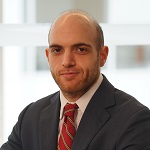
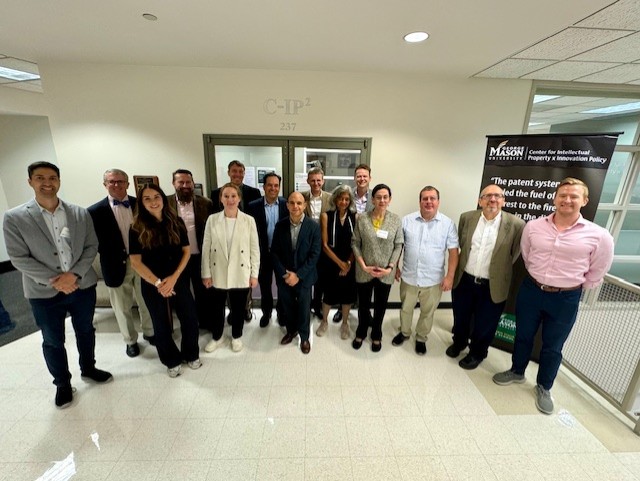
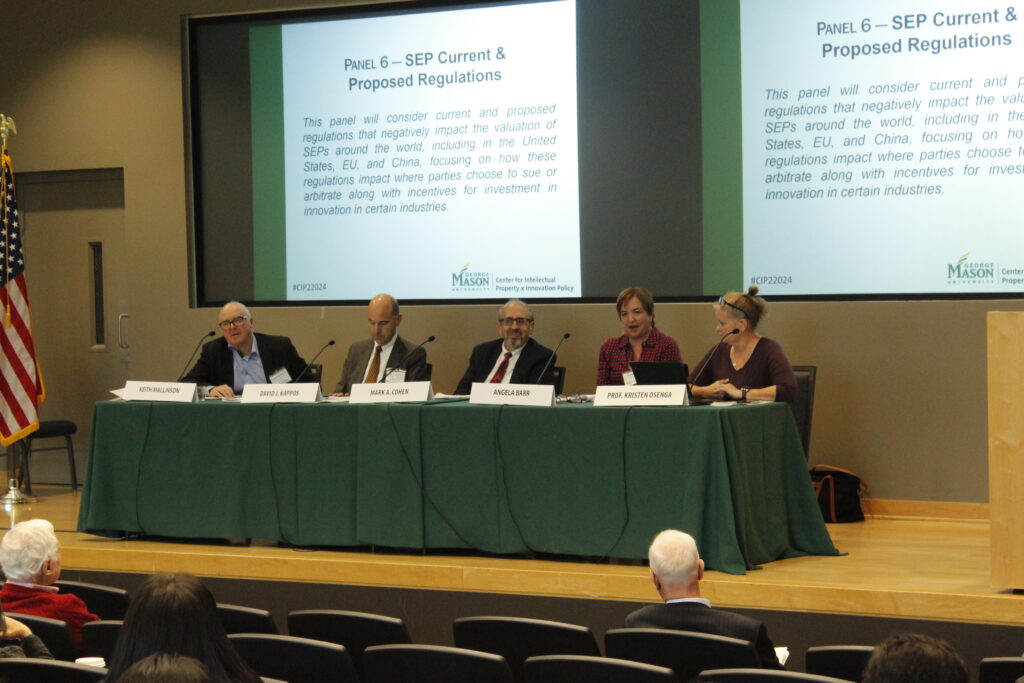
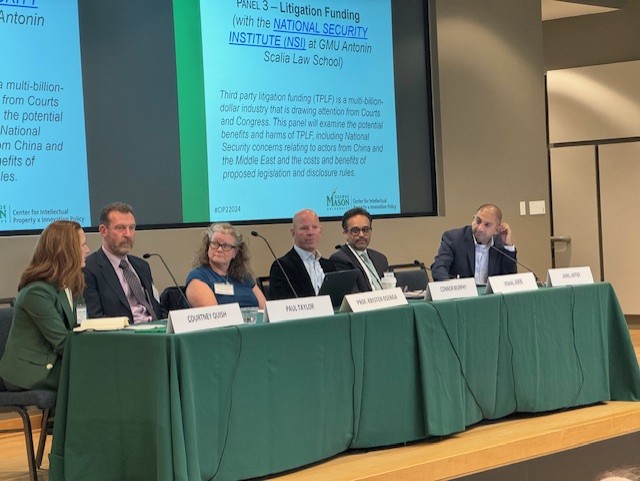
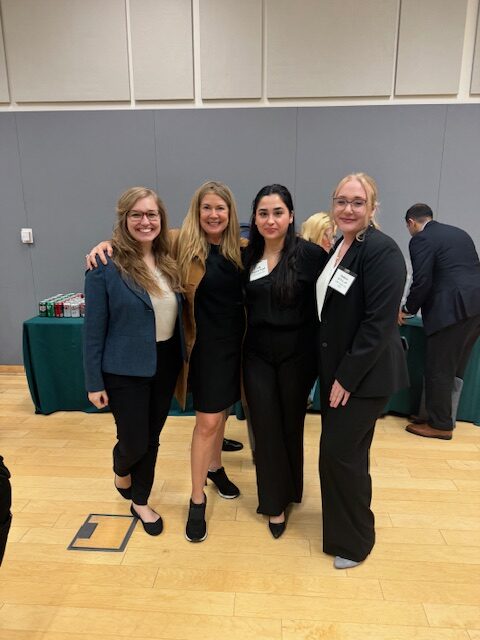



 Our very best wishes and many thanks to Professor Dale Lazar, who has officially retired from his career with George Mason University Antonin Scalia Law School as of the end of the Spring 2024 semester. Over these past years, Professor Lazar has been invaluable to C-IP2 in the running of the Innovation Law Clinic and as a regular instructor during the WIPO-U.S. Summer School on IP. Our team wishes him a very happy—and very well-deserved—retirement!
Our very best wishes and many thanks to Professor Dale Lazar, who has officially retired from his career with George Mason University Antonin Scalia Law School as of the end of the Spring 2024 semester. Over these past years, Professor Lazar has been invaluable to C-IP2 in the running of the Innovation Law Clinic and as a regular instructor during the WIPO-U.S. Summer School on IP. Our team wishes him a very happy—and very well-deserved—retirement!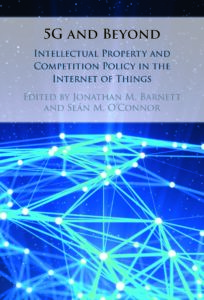

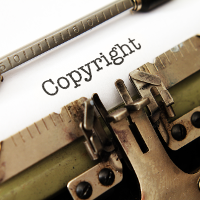


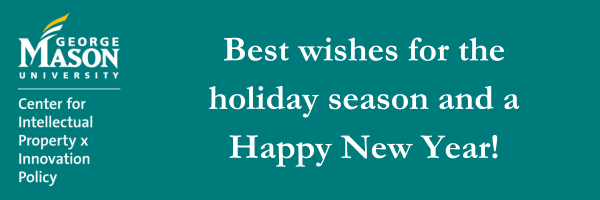
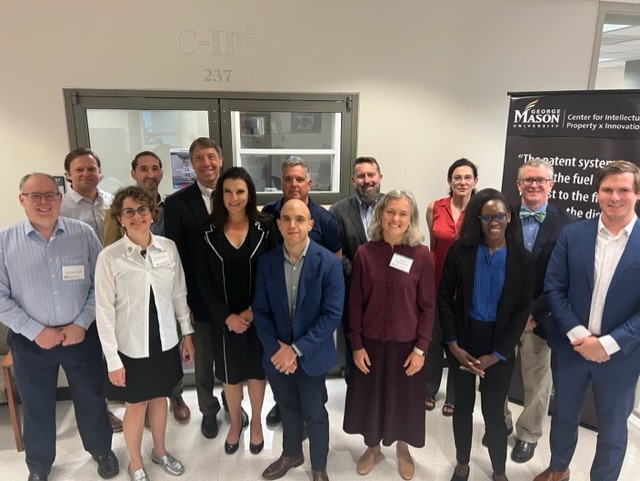
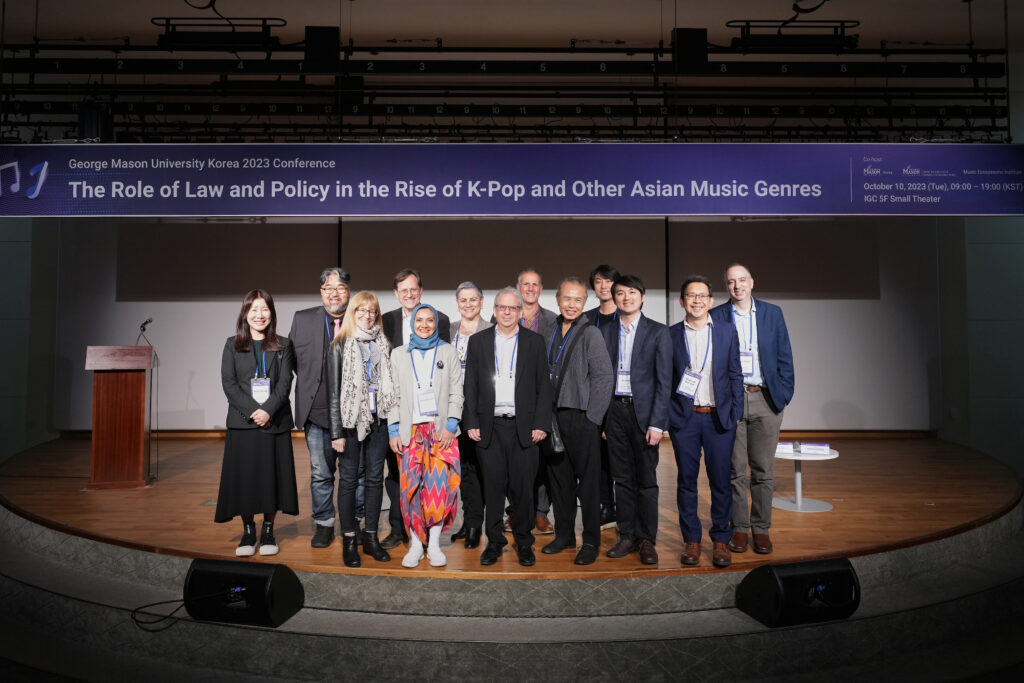
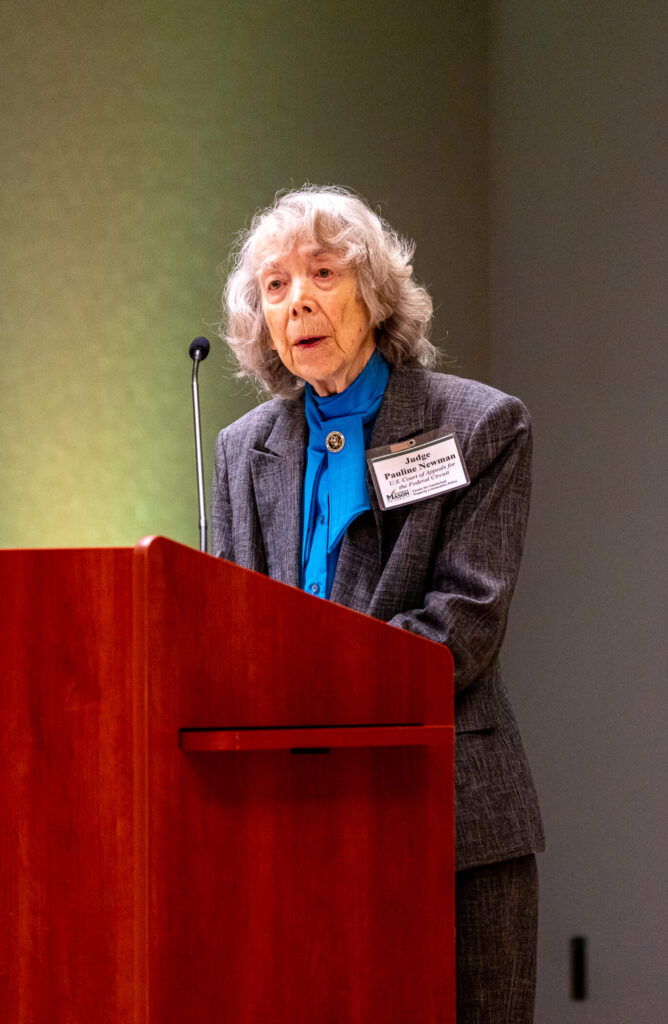
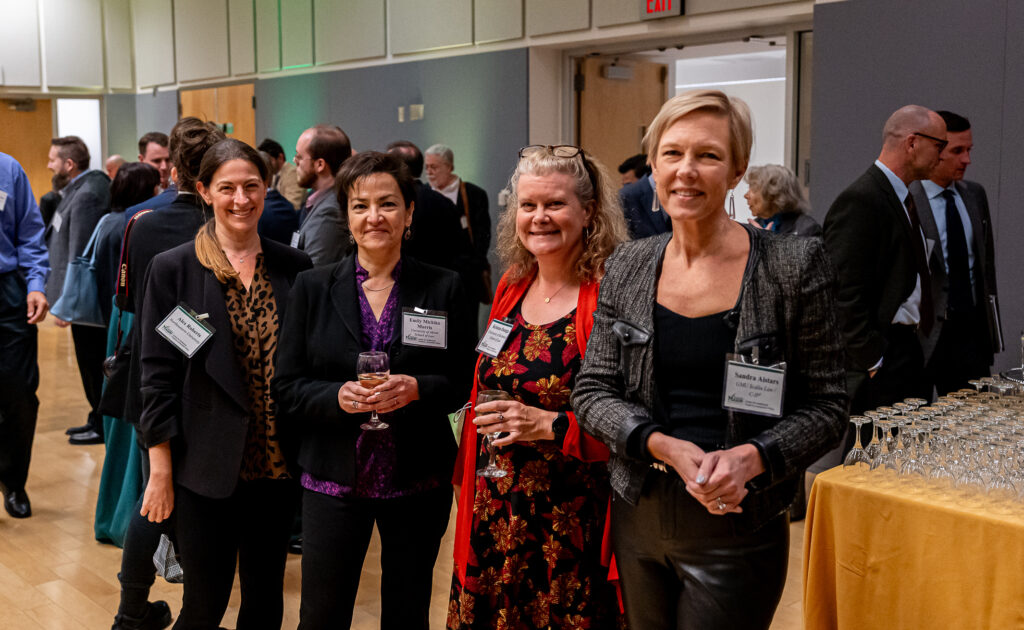
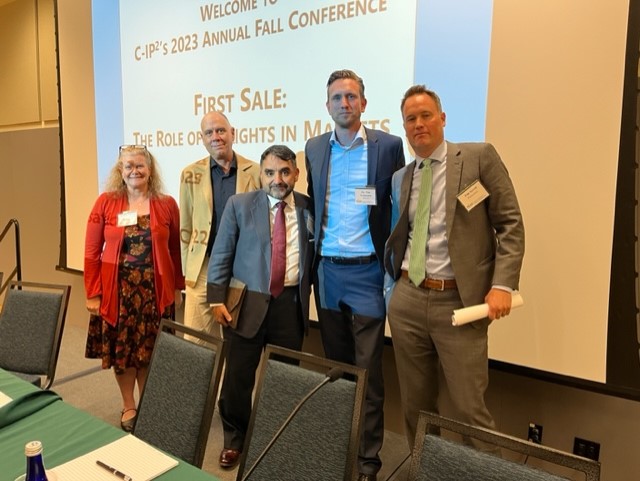
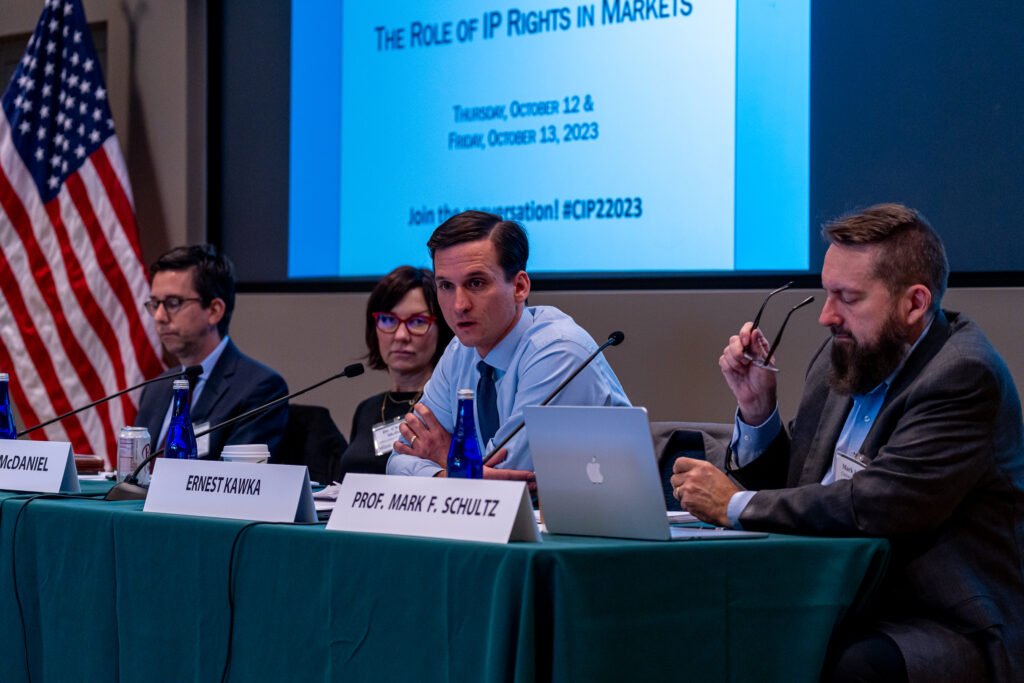
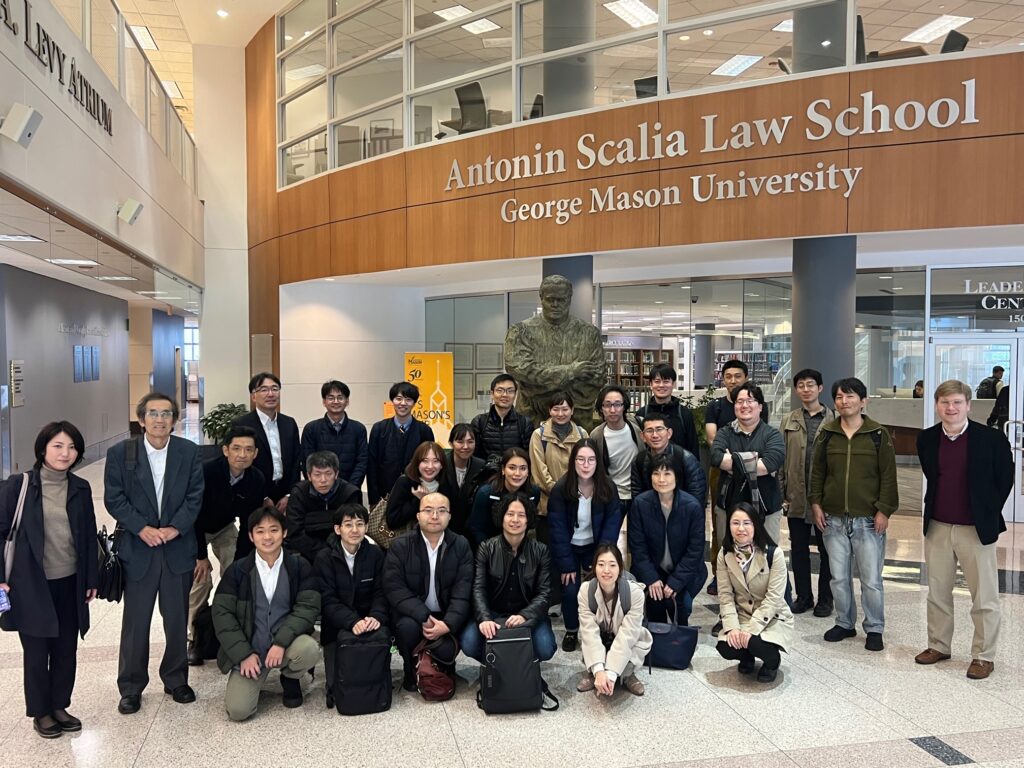
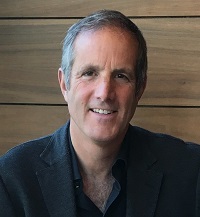
 The following post comes from Colin Kreutzer, a 2E at Scalia Law and a Research Assistant at C-IP2.
The following post comes from Colin Kreutzer, a 2E at Scalia Law and a Research Assistant at C-IP2.